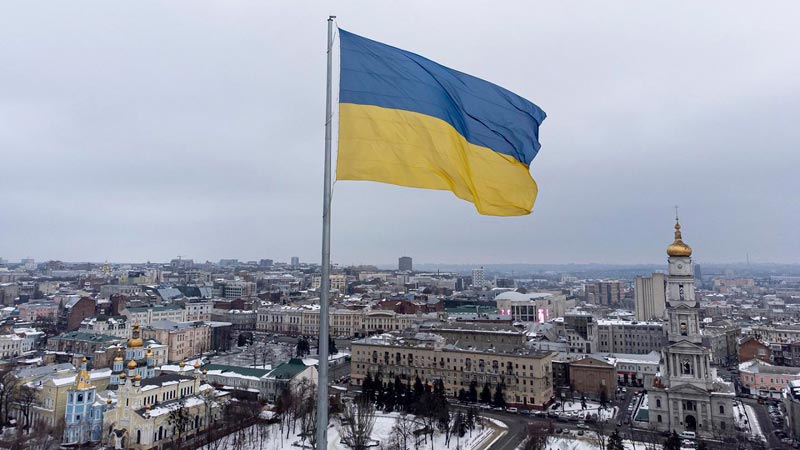
 By Eliza Popova
By Eliza Popova
Georgia is one of the few neighboring countries of the Russian Federation, where Russians can enter without visa. But while in Europe, Russian fugitives restrict entry and cancel visas, a new type of tourism is flourishing in Georgia - Russian desertion.
Why is Georgia, which still bleed wounds from war with Russia in 2008, does not impose such visa restrictions for Russians? Why did Georgians, unlike Ukrainians, forgive the occupier country so quickly? Can it seem like that? In family circumstances, my life has been closely linked to Georgia for the last 10 years. I have been watching Georgia since 2014, when I moved here (and four years). The statement is obvious - today Russian -speaking in Georgia is really many.
And this becomes a problem for the Georgians themselves. For example, in Batuma it is already difficult to find additional lessons in Georgian for children, because there are so many Russian-speaking children that even Georgian teachers adjust to them in order not to lose money (out of 10 children in sections-eight Russian-speaking and two Georgians who understand Russian).
When I write "Russian -speaking", I mean not only the Russians, because there are also many Ukrainians and Belarusians (who are often indistinguishable until you are in contact), who also speak Russian. Only in Batuma there are now almost 1000 Ukrainian children, for whom the Ukrainian -language sector has been opened in local schools (that is, children study under the Ukrainian program with Ukrainian teachers). Russian -speaking opens businesses (restaurants, services, repairs).
Once in the newly open cafe, my husband and I noted that there are only Russian -speaking menus on the tables. When asked by Georgian - we were brought, but it was "somewhere in the drawer. " In the capital of Georgia - Tbilisi - I rarely, so I will not say what the situation is there. But it cannot be said that Georgians do not protest against the "Russian invasion". Recently, the Deda ENA metropolitan bar had problems with the Russians that demanded to serve them in Russian.
Bar introduced a visa regime for visitors - they should fill in a special form, which confirm that they never voted for Putin, condemn Russian aggression in Ukraine, and recognize the sovereignty of the territory of Ukraine and Georgia. The bar was then attacked on social networks, broke the official page, and a flurry of bad grades, reviews and threats was observed from visitors.
Before moving to the "storm of borders" through mobilization, I will remind you that the visa regime in Georgia and Russia is one -sided since 2012. That is, for Georgians in Russia, visas are needed, and for Russians in Georgia - no. Therefore, the thesis "is humiliating-to let the Russians" relevant for 2008 years from 10. According to the Ministry of Internal Affairs of Georgia only in August 2022, 260,000 Russians came to the country (the major Ossetia).
After the announcement of Russian dictator Vladimir Putin on September 21, "partial mobilization" by the daily border of Russia-group cross up to 10,000 Russians. Over the past 10 days, 78,000 came to the country, at the same time, more than 60,000 were left.
A few weeks ago, the regime was complicated and began to spread dozens of Russians daily (regardless of profession, political views, business or housing, there are, for example, journalists who here are here They lived with families for the last few years). When I read how they are mocking from the invasion of visitors from Russia in Kazakhstan, a little envy. Because in Georgia there is no. It is absolutely sure that the Georgians do not want to see so many Russians on their land.
But, unfortunately, in public communication, neither the authorities nor ordinary citizens say this unwillingness (except for hanging blue and yellow flags on each window). I think there are two reasons for such a quiet acceptance of the situation: 1. Fear - Georgia, unlike Ukraine, can be taken in two days. 2.
A relatively poor population against the background of the economic crisis does not want to give up the money brought with them (the rent of apartments has tripled, the transfer of crypt to cash - for considerable interest, the service sector is thriving). Today, on September 28, the Russian authorities closed the entrance to North Ossetia from other regions, that is, the fugitives will no longer get to the border. In addition, the summons of men began to be published directly on the border.
So it turns out that from Russian deserters, Georgia will save Putin himself. And what about the population of Georgia? Unfortunately, the Georgians I know are more willing to speak of their own emigration than protests and radical counteraction to the flow of Russians, which is constantly increasing. But I believe in their resistance.
Thousands of people went to support Ukraine support in the spring, they demanded that the authorities join sanctions against Russia and made it clear that there was no alternative to European choice. Today, the Georgians protested 5 km from the border with Russia (the police were not allowed closer) with the inscriptions "Russia is a terrorist state". I see Ukrainian flags across the country and how Russians in Georgia are afraid to confess where they are from.










All rights reserved IN-Ukraine.info - 2022